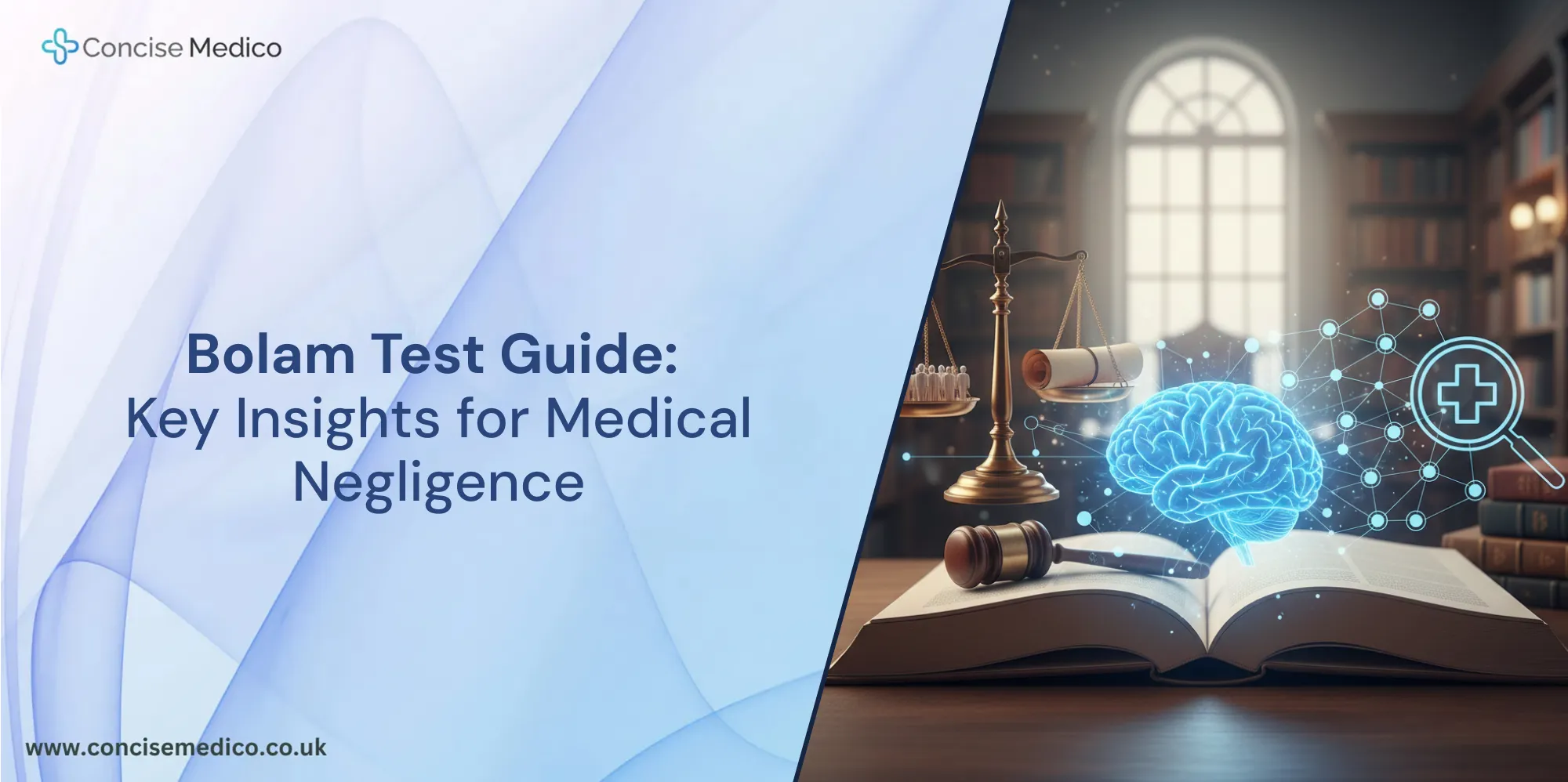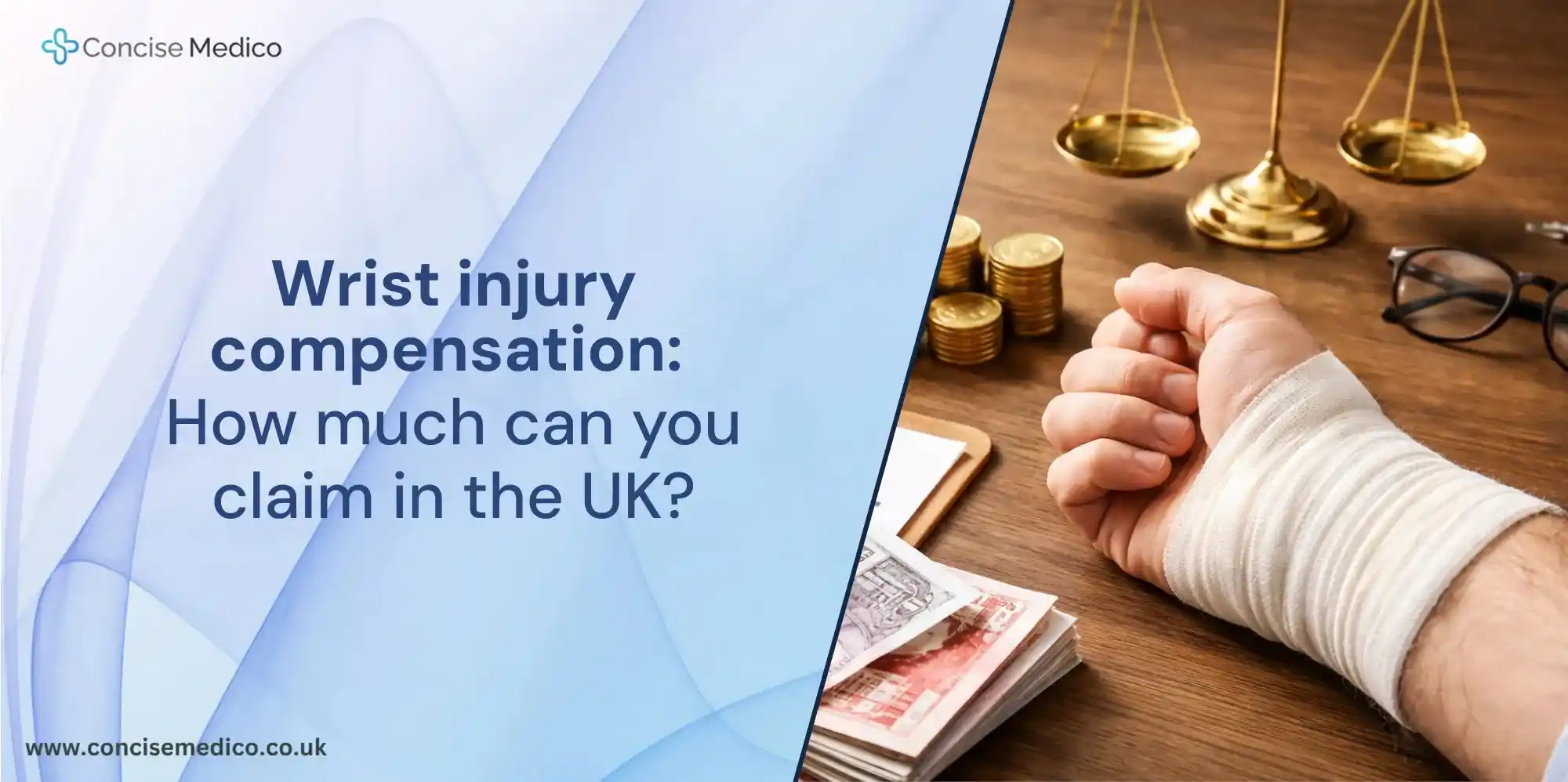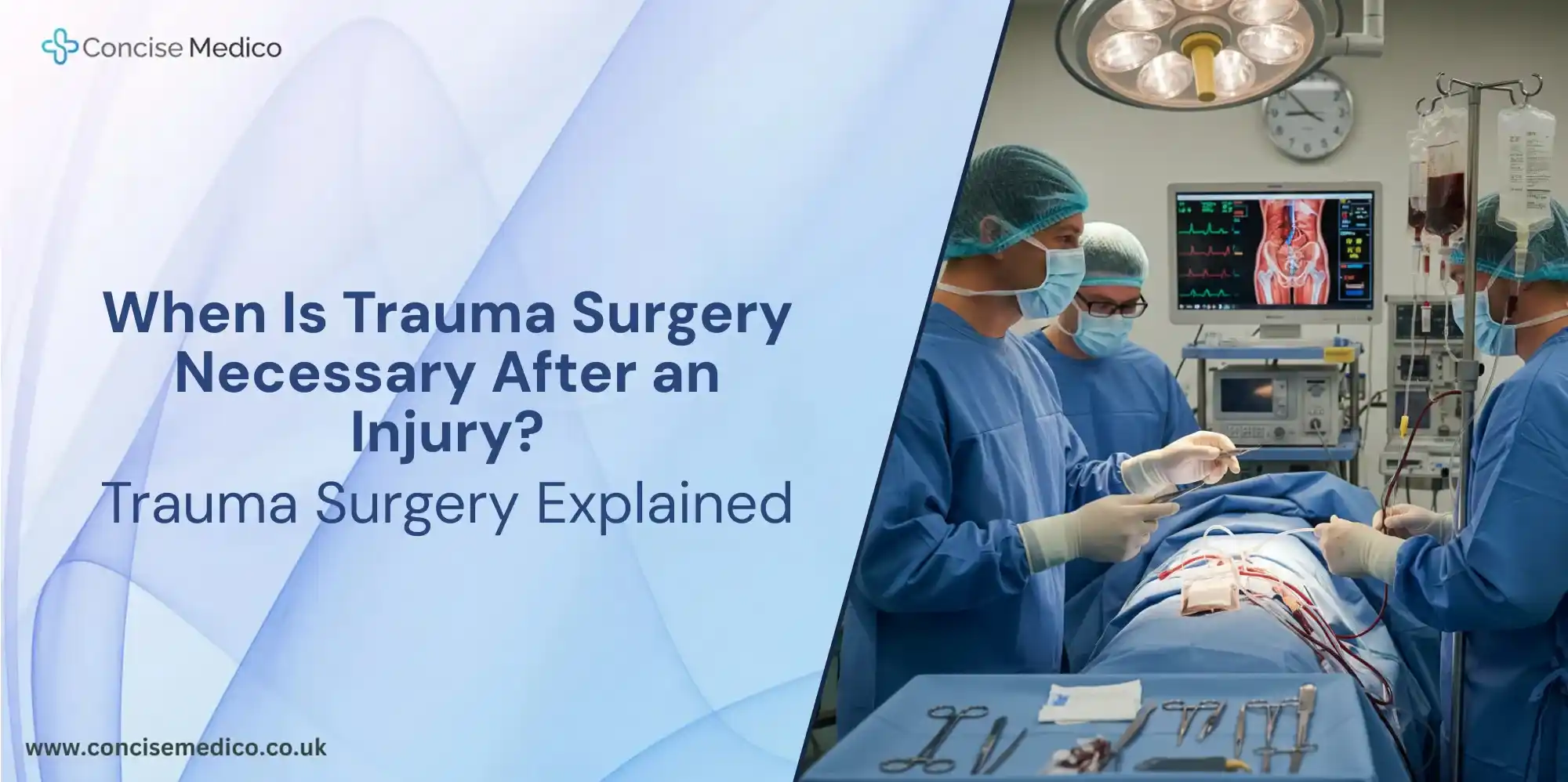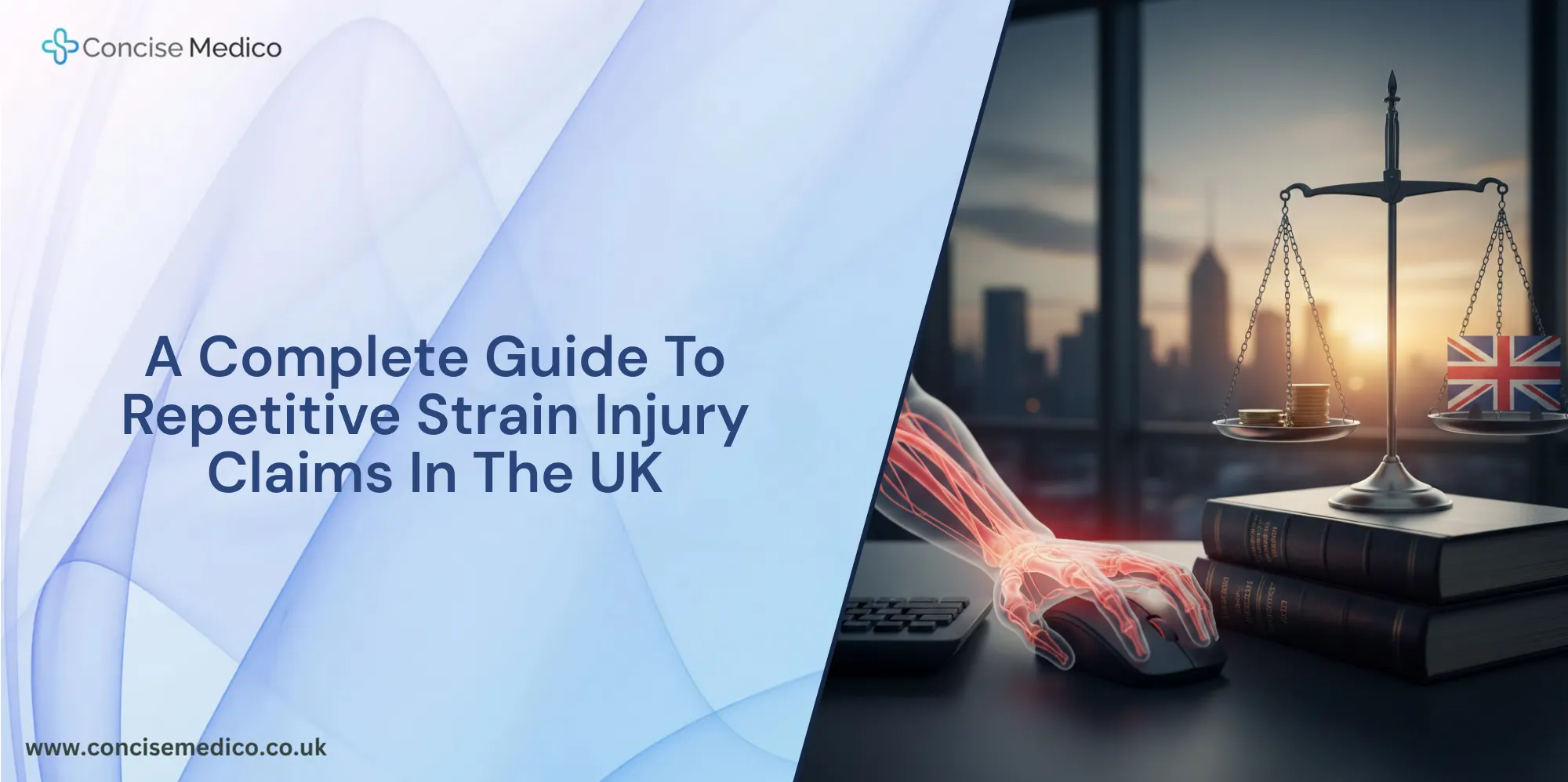TABLE OF CONTENT
- When is Guardianship Necessary?
- Why Guardians’ Mental Health Matters in Guardianship
- Guardians Mental Health and the Law
- What Is a Guardianship Order?
- What Powers Can Be Applied in Guardianship?
- Welfare vs. Financial Guardianship
- Guardians Mental Health Checks in Court
- Guardianship under Mental Health Act
- How to Apply for Guardianship?
- What the Guardian Must Prove
- Why Courts Take Mental Health Seriously
- Choosing the Right Guardianship with Concise Medico
- FAQs
Guardianship applies when someone can’t make key choices due to health issues like dementia or autism. A court names a guardian to handle their personal, health, and money matters. A check of guardians’ mental health ensures they can make good decisions for the person. It is completely distinct from custody. A guardian makes big decisions about the child’s health, school, and home. While custody usually refers to who a child lives with after parents separate or divorce.
Guardianship child situations occur when a child needs someone to care for them. This may be due to the loss of parents, poor living conditions, or mental illness. The court picks a legal guardian to take care of the child’s needs. The latest Safeguarding Pressures research, which has been published biennially by the ADCS for the past 17 years, identified an 83% rise in child protection plans and a 28% increase in children in care since 2007.
In the UK, courts always put the child’s best interest first. They pay attention to guardians’ mental health. The mental state of the guardian is important for providing a safe and stable home for the child.
When is Guardianship Necessary?
Guardianship is needed if an adult loses capacity and has no power of attorney in place. The court then gives a guardian legal power over their welfare and finances. This can help those who fall ill or young adults who turn 16 and still need protection.
What Does It Mean to Be Incapable in Guardianship
Under the Mental Capacity Act 2005 in England and Wales, someone is incapable if they cannot understand or remember the information needed to make a decision. This may follow illness, injury, or a long-term condition. Health and social care professionals assess and confirm incapacity before any decisions are made on the person’s behalf.
Why Guardians’ Mental Health Matters in Guardianship
A Guardians’ mental health is key to giving care, love, and a safe home. If a guardian feels sad, confused, or too tired, they may not be able to look after a child properly. That can put the child’s safety at risk. This is why courts often require checks of a guardians mental health before approval.
Can You Be a Guardian With Mental Health Issues?
The answer is yes — but with care. Courts do not deny guardianship only due to past mental illness. What matters is:
- Current mental state of parent
- Ongoing treatment of parents
- Ability of parent to provide care to their child
Courts also check if the person has a support system. Having good treatment records and therapy shows that someone is stable.
Guardians Mental Health and the Law
UK courts often use the Children Act 1989. It has rules about what to check in guardianship child cases. It stated that:
“The child’s welfare shall be the court’s paramount consideration.”
Children Act, 1989, Section 1
Some key points of the act are:
- The child’s emotional needs: The court looks at whether the child has love, comfort, and a stable home life.
- The guardian’s ability to meet those needs: The court asks if the guardian can stay calm, patient, and supportive every day.
- Past harm or future risks: The court reviews any history of harm by the guardian and checks for warning signs of harm in the future.
- Guardians mental health history: If the guardian has mental health issues, the court checks how serious they were and what help or treatment the guardian has received.
What Is a Guardianship Order?
A Guardianship Order is a court decision that lets someone act for a person who cannot make their own choices. It can cover money matters, personal welfare, or both. This order works when the person is over 16 and has long-term needs. A check of guardians mental health helps the court pick the right guardian.
What Powers Can Be Applied in Guardianship?
An application lists the specific powers the guardian needs. The judge then decides which powers to grant. Common financial powers include managing bank accounts or selling property. Common welfare powers cover choosing where the person lives or agreeing to medical care. A clear list makes sure the guardian can help properly.
Welfare vs. Financial Guardianship
A welfare guardian looks after daily needs, such as where the person lives and what medical care they get. A financial guardian handles money and assets when things are complex. In many guardianship child cases, only welfare powers are needed if the person has few assets. Courts check guardians mental health to ensure each guardian can meet the role.
Guardians Mental Health Checks in Court
Why the Mental Heal Check Matters
Guardians mental health is now a major part of court decisions. It helps judges understand if the person is fit to raise and protect a child over time. Courts may ask for mental health checks to see if the guardian can meet a child’s daily and emotional needs. If a guardian is not mentally stable, the child may face harm or neglect.
What the Evaluation Includes
A full check of guardians mental health will include:
Mental health history
It reviews any past diagnoses, counseling sessions, and hospital stays to understand the guardians mental health history.
Therapy and medication records
It lists all medications taken and therapy attended to see how the guardian has managed health issues.
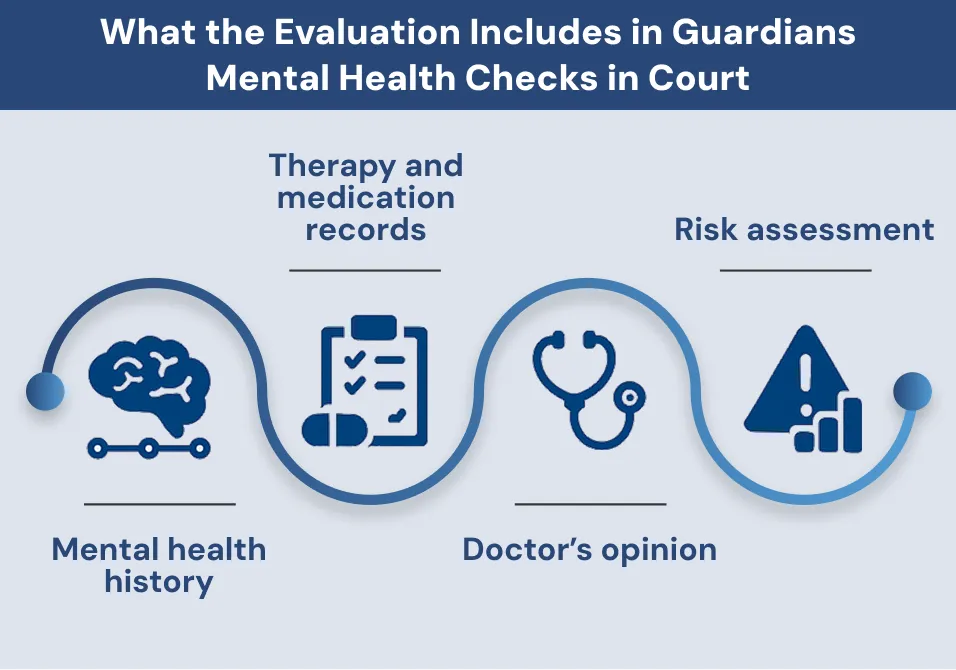
Doctor’s opinion
It includes a doctor’s written opinion on the guardian’s current mindset and ability to care for a child.
Risk assessment
It checks for warning signs like mood swings or high stress that could affect the child’s safety.
The court reviews all this before making a final decision. These checks help create a full picture of the person’s ability of safe parenting.
Read details about how mental health issues affect child custody decisions.
Guardianship under Mental Health Act
Sometimes, guardianship is used for people who can’t make choices due to mental illness. This is known as guardianship under mental health act.
This law is used for adults with long-term mental illness. It helps make sure they:
- It ensures they live in a safe setting.
- It guarantees they receive the right care.
- It gives a trusted person the power to decide for them.
While this is not the same as child guardianship, both roles need strong mental health.
Britney Spears Conservatorship
In 2008, after a public mental health crisis, a Los Angeles court placed singer Britney Spears under a conservatorship. Her father gained legal control over her personal and financial decisions. Following the “Free Britney” movement and court reviews, the conservatorship was terminated in November 2021, prompting calls for guardianship reform.
How to Apply for Guardianship?
Step 1: Prepare the Summary Application
- Fill in the court form showing which powers you need and why they will help the adult.
- Mention any issues around guardians mental health if they affect the care plan.
Step 2: Obtain Medical Reports
- Get a GP report, a psychiatric report, and a mental health officer’s report on the adult.
- These must show the adult’s ability to make decisions.
Step 3: Serve the Papers
- The court issues a warrant and sends the application to everyone with an interest.
- They have 21 days to raise any objections.
Step 4: Attend the Hearing
- A sheriff hears the case after the 21-day period ends.
- If the order will benefit the adult, the guardian powers are granted.
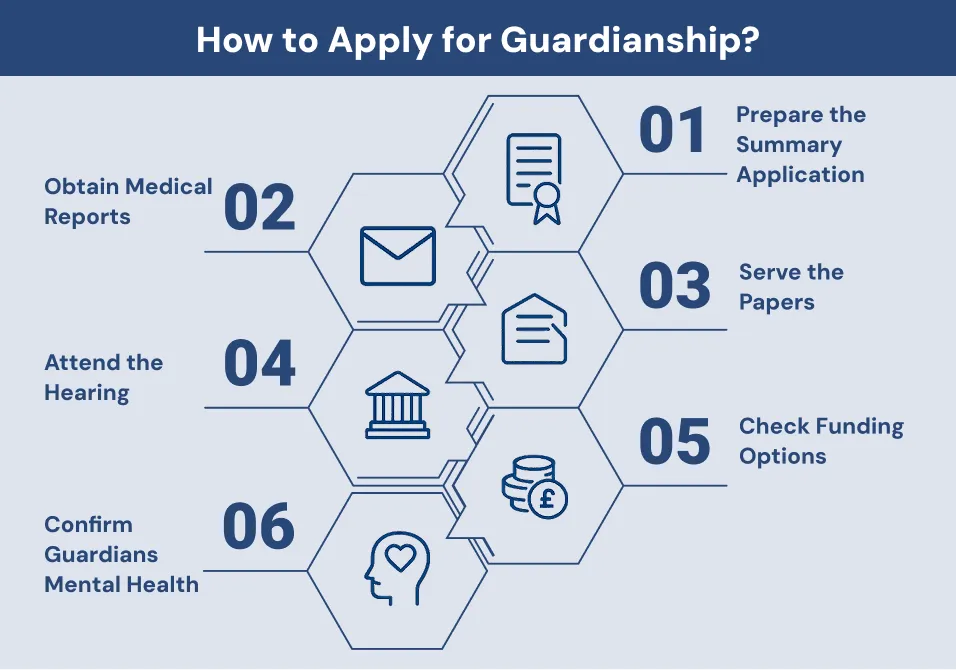
Step 5: Check Funding Options
- Civil Legal Aid for welfare guardianship is usually automatic and not means-tested.
- Advice and Assistance may involve fees based on the adult’s finances.
Step 6: Confirm Guardians Mental Health
- A simple check can assure the court you are fit to care.
- This helps the court feel confident in your role.
What the Guardian Must Prove
Courts have clear requirements for guardianship. These include the person applying for guardianship must have:
- Age over 18
- No past abuse cases
- Ability to offer stable home
- Good mental and emotional health
Guardians must also show they can meet the child’s daily needs. That means food, school, love, and safety.
How to Improve Your Chances as a Guardian
Steps to Show Readiness
If you have a mental health history and want to be a guardian, take steps to show growth and care:
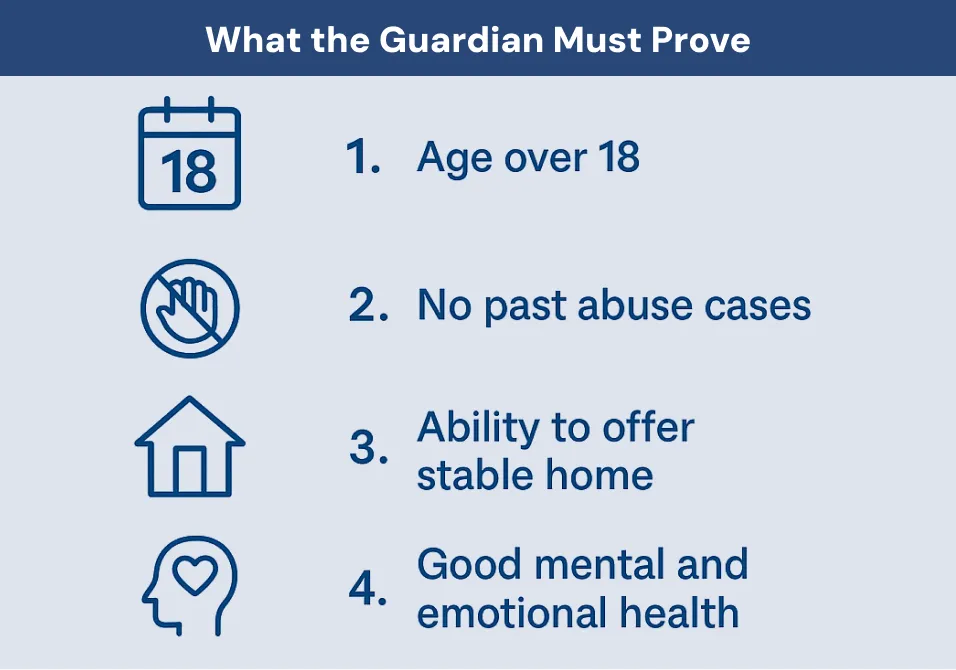
- Keep attending therapy
- Take parenting or support classes
- Keep your home calm and safe
- Stay employed or show stable income
- Maintain close and healthy ties with the child
Proof That Helps in Court
If you want to improve your chances to become a guardian, you should also:
- Bring a letter from your doctor or therapist. That paper proves you work with a qualified professional.
- Ask friends or neighbors for kind words. Their notes explain your standing in the community.
- Show records from school events or sports. These documents prove you’ve cared for your child before.
- Prepare a daily care plan for a child. Outlining meals, study times, and play shows your planning skills.
These show the court that you are responsible and prepared, even if you’ve had past mental health issues.
When Guardianship Is Denied
Courts may say no if they think the child is at risk. Some common reasons:
- If you are not taking treatment for illness
- You have any history of violence or neglect
- You are living in an unsafe home
- You have a poor contact with the child
In such cases, the court may look for another family member or foster care.
Why Courts Take Mental Health Seriously
Guardianship mental health rules as discussed above are strict because the child’s life is involved. A small mistake can hurt the child for years.
That’s why all mental health facts must be shared. Courts use these facts to protect both the guardian and the child.
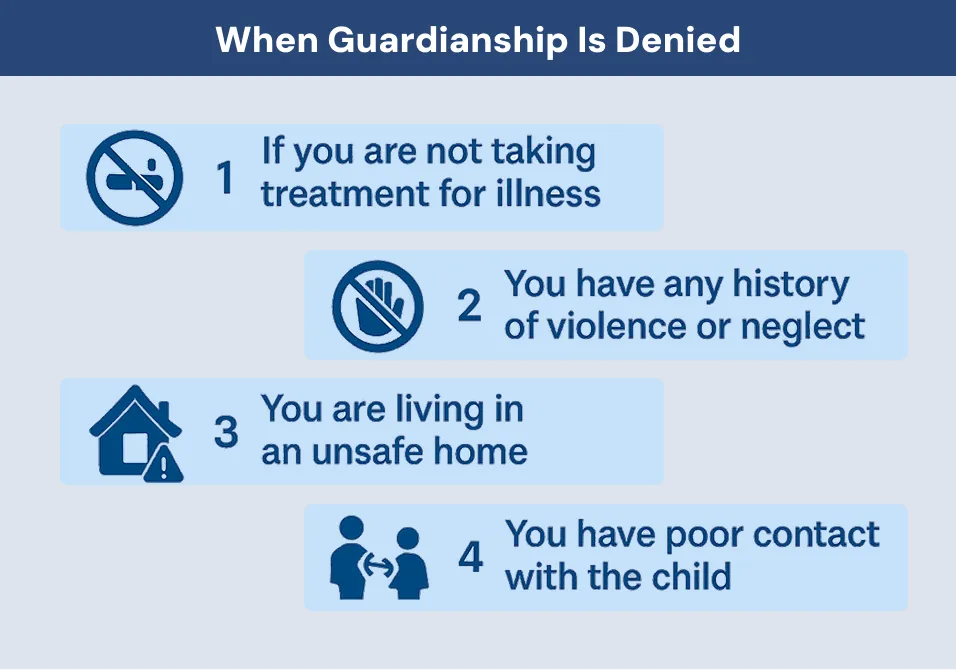
Choosing the Right Guardianship with Concise Medico
Guardians mental health matters in every guardianship child case. The courts want what’s best for the child. That includes placing them with someone who is not only loving — but also mentally stable.
That doesn’t mean that we rule out people with mental illness. Many people get treatment, stay healthy, and give great care. What the courts look for is proof — proof that you’re fit, ready, and strong.
If you’re not sure about your case, Concise Medico can help. They offer expert evaluations. Our team provides trusted medical and mental health reports to courts across the UK.
Contact Us to book a consultation today. Let’s help you take the right step toward guardianship.
FAQs
Guardianship applies when someone can’t make key choices due to health issues like dementia or autism. A court names a guardian to handle their personal, health, and money matters. A check of guardians’ mental health ensures they can make good decisions for the person. It is completely distinct from custody. A guardian makes big decisions about the child’s health, school, and home. While custody usually refers to who a child lives with after parents separate or divorce.
Guardianship child situations occur when a child needs someone to care for them. This may be due to the loss of parents, poor living conditions, or mental illness. The court picks a legal guardian to take care of the child’s needs. The latest Safeguarding Pressures research, which has been published biennially by the ADCS for the past 17 years, identified an 83% rise in child protection plans and a 28% increase in children in care since 2007.
In the UK, courts always put the child’s best interest first. They pay attention to guardians’ mental health. The mental state of the guardian is important for providing a safe and stable home for the child.
When is Guardianship Necessary?
Guardianship is needed if an adult loses capacity and has no power of attorney in place. The court then gives a guardian legal power over their welfare and finances. This can help those who fall ill or young adults who turn 16 and still need protection.
What Does It Mean to Be Incapable in Guardianship
Under the Mental Capacity Act 2005 in England and Wales, someone is incapable if they cannot understand or remember the information needed to make a decision. This may follow illness, injury, or a long-term condition. Health and social care professionals assess and confirm incapacity before any decisions are made on the person’s behalf.
Why Guardians’ Mental Health Matters in Guardianship
A Guardians’ mental health is key to giving care, love, and a safe home. If a guardian feels sad, confused, or too tired, they may not be able to look after a child properly. That can put the child’s safety at risk. This is why courts often require checks of a guardians mental health before approval.
Can You Be a Guardian With Mental Health Issues?
The answer is yes — but with care. Courts do not deny guardianship only due to past mental illness. What matters is:
- Current mental state of parent
- Ongoing treatment of parents
- Ability of parent to provide care to their child
Courts also check if the person has a support system. Having good treatment records and therapy shows that someone is stable.
Guardians Mental Health and the Law
UK courts often use the Children Act 1989. It has rules about what to check in guardianship child cases. It stated that:
“The child’s welfare shall be the court’s paramount consideration.”
Children Act, 1989, Section 1
Some key points of the act are:
- The child’s emotional needs: The court looks at whether the child has love, comfort, and a stable home life.
- The guardian’s ability to meet those needs: The court asks if the guardian can stay calm, patient, and supportive every day.
- Past harm or future risks: The court reviews any history of harm by the guardian and checks for warning signs of harm in the future.
- Guardians mental health history: If the guardian has mental health issues, the court checks how serious they were and what help or treatment the guardian has received.
What Is a Guardianship Order?
A Guardianship Order is a court decision that lets someone act for a person who cannot make their own choices. It can cover money matters, personal welfare, or both. This order works when the person is over 16 and has long-term needs. A check of guardians mental health helps the court pick the right guardian.
What Powers Can Be Applied in Guardianship?
An application lists the specific powers the guardian needs. The judge then decides which powers to grant. Common financial powers include managing bank accounts or selling property. Common welfare powers cover choosing where the person lives or agreeing to medical care. A clear list makes sure the guardian can help properly.
Welfare vs. Financial Guardianship
A welfare guardian looks after daily needs, such as where the person lives and what medical care they get. A financial guardian handles money and assets when things are complex. In many guardianship child cases, only welfare powers are needed if the person has few assets. Courts check guardians mental health to ensure each guardian can meet the role.
Guardians Mental Health Checks in Court
Why the Mental Heal Check Matters
Guardians mental health is now a major part of court decisions. It helps judges understand if the person is fit to raise and protect a child over time. Courts may ask for mental health checks to see if the guardian can meet a child’s daily and emotional needs. If a guardian is not mentally stable, the child may face harm or neglect.
What the Evaluation Includes
A full check of guardians mental health will include:
Mental health history
It reviews any past diagnoses, counseling sessions, and hospital stays to understand the guardians mental health history.
Therapy and medication records
It lists all medications taken and therapy attended to see how the guardian has managed health issues.

Doctor’s opinion
It includes a doctor’s written opinion on the guardian’s current mindset and ability to care for a child.
Risk assessment
It checks for warning signs like mood swings or high stress that could affect the child’s safety.
The court reviews all this before making a final decision. These checks help create a full picture of the person’s ability of safe parenting.
Read details about how mental health issues affect child custody decisions.
Guardianship under Mental Health Act
Sometimes, guardianship is used for people who can’t make choices due to mental illness. This is known as guardianship under mental health act.
This law is used for adults with long-term mental illness. It helps make sure they:
- It ensures they live in a safe setting.
- It guarantees they receive the right care.
- It gives a trusted person the power to decide for them.
While this is not the same as child guardianship, both roles need strong mental health.
Britney Spears Conservatorship
In 2008, after a public mental health crisis, a Los Angeles court placed singer Britney Spears under a conservatorship. Her father gained legal control over her personal and financial decisions. Following the “Free Britney” movement and court reviews, the conservatorship was terminated in November 2021, prompting calls for guardianship reform.
How to Apply for Guardianship?
Step 1: Prepare the Summary Application
- Fill in the court form showing which powers you need and why they will help the adult.
- Mention any issues around guardians mental health if they affect the care plan.
Step 2: Obtain Medical Reports
- Get a GP report, a psychiatric report, and a mental health officer’s report on the adult.
- These must show the adult’s ability to make decisions.
Step 3: Serve the Papers
- The court issues a warrant and sends the application to everyone with an interest.
- They have 21 days to raise any objections.
Step 4: Attend the Hearing
- A sheriff hears the case after the 21-day period ends.
- If the order will benefit the adult, the guardian powers are granted.

Step 5: Check Funding Options
- Civil Legal Aid for welfare guardianship is usually automatic and not means-tested.
- Advice and Assistance may involve fees based on the adult’s finances.
Step 6: Confirm Guardians Mental Health
- A simple check can assure the court you are fit to care.
- This helps the court feel confident in your role.
What the Guardian Must Prove
Courts have clear requirements for guardianship. These include the person applying for guardianship must have:
- Age over 18
- No past abuse cases
- Ability to offer stable home
- Good mental and emotional health
Guardians must also show they can meet the child’s daily needs. That means food, school, love, and safety.
How to Improve Your Chances as a Guardian
Steps to Show Readiness
If you have a mental health history and want to be a guardian, take steps to show growth and care:

- Keep attending therapy
- Take parenting or support classes
- Keep your home calm and safe
- Stay employed or show stable income
- Maintain close and healthy ties with the child
Proof That Helps in Court
If you want to improve your chances to become a guardian, you should also:
- Bring a letter from your doctor or therapist. That paper proves you work with a qualified professional.
- Ask friends or neighbors for kind words. Their notes explain your standing in the community.
- Show records from school events or sports. These documents prove you’ve cared for your child before.
- Prepare a daily care plan for a child. Outlining meals, study times, and play shows your planning skills.
These show the court that you are responsible and prepared, even if you’ve had past mental health issues.
When Guardianship Is Denied
Courts may say no if they think the child is at risk. Some common reasons:
- If you are not taking treatment for illness
- You have any history of violence or neglect
- You are living in an unsafe home
- You have a poor contact with the child
In such cases, the court may look for another family member or foster care.
Why Courts Take Mental Health Seriously
Guardianship mental health rules as discussed above are strict because the child’s life is involved. A small mistake can hurt the child for years.
That’s why all mental health facts must be shared. Courts use these facts to protect both the guardian and the child.

Choosing the Right Guardianship with Concise Medico
Guardians mental health matters in every guardianship child case. The courts want what’s best for the child. That includes placing them with someone who is not only loving — but also mentally stable.
That doesn’t mean that we rule out people with mental illness. Many people get treatment, stay healthy, and give great care. What the courts look for is proof — proof that you’re fit, ready, and strong.
If you’re not sure about your case, Concise Medico can help. They offer expert evaluations. Our team provides trusted medical and mental health reports to courts across the UK.
Contact Us to book a consultation today. Let’s help you take the right step toward guardianship.
